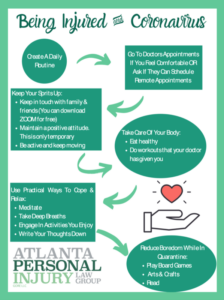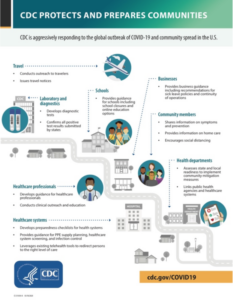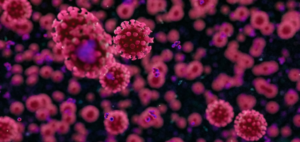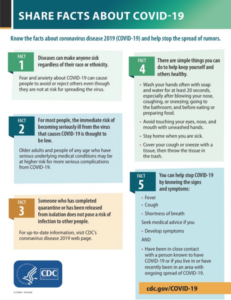What is Telemedicine? Getting Medical Treatment During the Coronavirus Outbreak
Telemedicine is a new way to use modern technology by continuing to have doctors’ appointments during the Coronavirus outbreak we are experiencing. Telemedicine is when a medical provider cares for patients remotely without being physically present with one another. This has enabled providers to consult patients through video conferencing tools that are HIPAA complaint. Doctors believe that during this time, telemedicine is a cautious way to avoid spreading the disease.
In President Trump’s latest speech, he describes this technological form of receiving medical care as “a fairly new and incredible thing that’s happened in the not-so-distant past,” and additionally states “what they’ve done with telehealth is incredible.” Trump added that our government will intentionally wave any federal rules in order to assure that medical providers feel comfortable using this method as a communication tool between them and their patients. Taking the proper precautions to ensure the safety and health of the masses is the number one goal during this difficult time. Luckily, telemedicine is here to provide people with the proper medical attention they deserve. For people who are recovering after an accident, although certain procedures will not be able to be provided via telemedicine, patients can at least get medical advice and documentation of their symptoms through these challenging times. Reach out to our team to learn more.

How to navigate being injured and having to take care of children
This can be a difficult time for you and your family because of all the uncertainty associated with Coronavirus. We have prepared a guide to help create a normal routine during quarantine. With a parent or guardian being injured during this time things may seem more impossible, but this guide will help you have control and navigate your family’s lives during this time.
Setup Structure:
Structure is the key to create a stable environment during this uncertain time. It’s a good idea to create a daily schedule to keep you on a healthy routine. If you are an injured parent or guardian, it’s important for yourself and family to create an everyday routine. Involve your kids or other family members in creating a daily plan, so they can participate in creating a schedule they like. We suggest:
- Maintaining a normal sleep schedule
- Wake up early and don’t sleep in
- Start off the day by getting things done
- Take your prescribed medicine to keep your body healthy
- Keep the same mealtimes you would any other day
- Try to move around as much as possible so your body doesn’t become immobile
- Encourage other activities other than screen time. Some ideas include reading, painting/drawing, cleaning, and cooking.
Keep Moving:
Don't sit around and watch Netflix all day! It’s important for your health to stay active with your body and mind. If your Doctor has given you workouts to run through a couple times a day make sure you are blocking out some time to do them. Don’t overwork your body but use what downtime you have in the day to focus on your exercises.
Get things done:
If you can we suggest continuing to attend your doctor’s appointments while they are open. Some offices are using telemedicine which is another way to still have your appointments virtually. While everyone is home, now is the perfect opportunity to declutter and organize spaces in your house. Start thinking of home improvement projects that you can do during this time. Have your family help bond of this time working together to achieve common goals.
Give each other Space:
The point of a temporary quarantine is to limit social interaction by distancing yourself from others. Currently, the CDC recommends canceling or postponing events with 10 or more people. Gatherings of any size should follow guidelines for social distancing and protecting vulnerable populations, such as avoiding close contact with others (within six feet). We also encourage individuals to limit media exposure to ease anxiety about the coronavirus during quarantine.
Helpful Links
What you need to know:
- Johns Hopkins Coronavirus Resource Page
- Johns Hopkins Coronavirus (COVID-19) Live Statistics Tracker
- Centers for Disease Control (CDC) Coronavirus Updates
- World Health Organization (WHO) Coronavirus Updates
- Federal Agencies Respond to COVID-19
- State Government Responses to COVID-19 - Stateside Associates
- Track Updates on CDC Twitter
- Follow Updates on The Conduit Street Blog
Preventing Covid-19:
- Preventing COVID-19 Spread in Communities - CDC
- Plan and Prepare Now Before It Hits Your Community - ICMA
- Prevention Recommendations in non-healthcare workplaces - CDC
- Hazard recognition and preventing worker exposure - OSHA
- Getting your workplace ready for COVID-19 Memo - WHO
- Social Distancing Explained - JHU
































